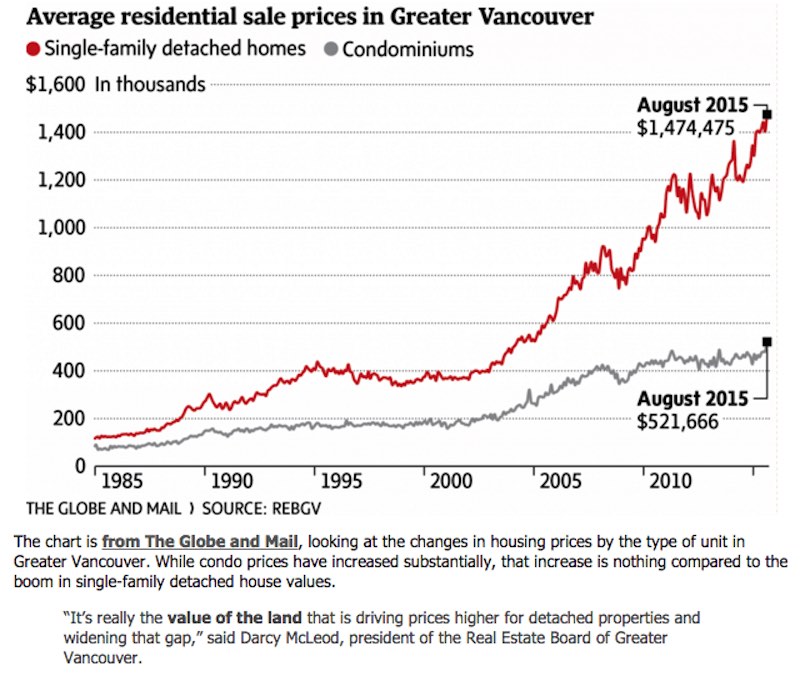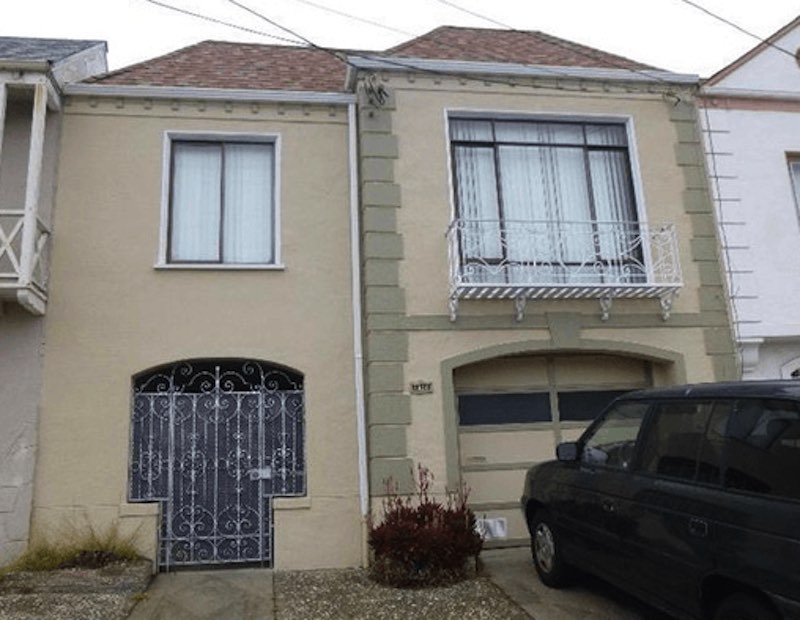You may be surprised to hear that condos, all else equal, are more expensive than houses. You should be, because it’s not true. But that didn’t deter Joel Kotkin, the one-man cottage industry of curious urban criticism, from claiming so from his perch at Chapman University. As SF Weekly dutifully reported, Kotkin and his colleagues have released a report that claims multifamily buildings—at least those over four stories or so—can’t be cheaper than single-family homes, because “higher density construction is far more expensive to build.”
As far as it goes, that’s a fair enough claim. Taller, bigger buildings need more elaborate foundations, bigger work crews, and expensive features like elevators, which all drive up the cost of construction per square foot.
And if we constructed buildings floating out in space, that might make condos more expensive. But down here on Earth, buildings are built on land. And land costs money.

And especially in high-demand housing markets, it’s land costs that make single-family homes so expensive. That’s because single-family homes have to absorb all of the price of the land they sit on in their own prices. If you build multiple homes on the same piece of land, then each of the homes only has to absorb a fraction of the land’s price.
That doesn’t just help to explain the difference in price between houses and condos. It helps explain the difference in price between single-family homes in different places.
From our partners:


The first photo above is a house in San Francisco. It costs $899,000. The photo below it is of a house in Detroit. It costs $26,000. If you were to simply look at the structures—that is, if these buildings were floating out in space—then these prices would make no sense. But the San Francisco home is not that expensive because the building itself is so amazing, nor is the Detroit house so cheap because the building is so terrible. Rather, each reflects the demand for their locations: that is, the price of the land they sit on.
Land costs are also part of why yearning for the old days of moderate-cost bungalows is unproductive.
A century ago, in most cities, it was possible to find relatively cheap land within commuting distance of downtown—partly because the invention of streetcars had just radically expanded the definition of “commuting distance”—so if you could build a house cheaply, you might end up with a relatively low-cost home. But as cities grow, and especially as their metropolitan economies grow, there’s more and more people competing for a fixed amount of land within easy commuting distance of job centers. As a result, the price of easily accessible locations—that is, land—increases substantially. At that point, it doesn’t really matter so much if you can build a home very cheaply, because the cost of the land it sits on will ensure that the total price of construction will be very high.
(Of course, in San Francisco, the supply of land for multi-family housing is further artificially constrained by zoning regulations. Because most of the city is zoned for very low-density use, the relatively few sites on which one is allowed to build new apartments or condominiums is very scarce and therefore very expensive. Further constricting the number of places where multi-family housing could be built in San Francisco—as Kotkin suggests—would drive up the price of all housing, single family and multifamily, newly built or existing, even higher.
There are basically two ways to resolve this problem: Find cheaper land—that is, build out on the suburban periphery, pushing sprawl further away from the city center—or divide the cost of the land by more than one home.
This feature originally appeared in City Observatory













